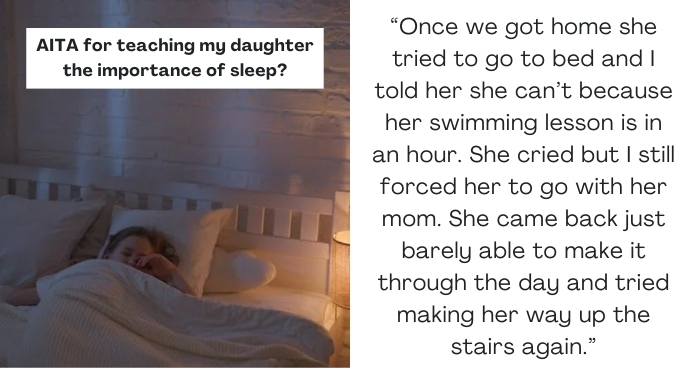Am I wrong for teaching my daughter the importance of sleep?



Parenting Approaches to Bedtime Resistance
Bedtime battles are common, with surveys showing that over 60% of parents report challenges enforcing bedtime routines. Effective strategies include:
- Consistent Routines: Creating a predictable bedtime ritual, such as reading or relaxing activities, can help children mentally prepare for sleep.
- Offering Limited Choices: For instance, asking, “Would you like to go to bed now or in 10 minutes?” gives children a sense of control while keeping the outcome non-negotiable.
- Explaining Sleep’s Role: Helping children understand how sleep benefits them can make bedtime feel less arbitrary. Resources like the National Sleep Foundation provide age-appropriate ways to discuss sleep with children.


Establishing Healthy Sleep Habits for Children
Bedtime routines often spark debates among parents. Some advocate for flexible strategies, like temporarily allowing later bedtimes to teach self-regulation. While effective for some, critics argue this approach risks being manipulative and overlooks the need for consistency.
Experts recommend children aged 6-13 get 9-11 hours of sleep, often requiring a bedtime around 8 p.m. Parents allowing later bedtimes, such as 10 p.m., may unintentionally contribute to sleep deprivation, affecting mood, behavior, and academics.
Parental alignment is also vital. Making unilateral decisions about bedtime routines can create conflict, underscoring the need for teamwork and open communication. Balancing structure, empathy, and collaboration ensures healthier habits and family harmony.
Reddit Comments
Marmot_Mountain said:











